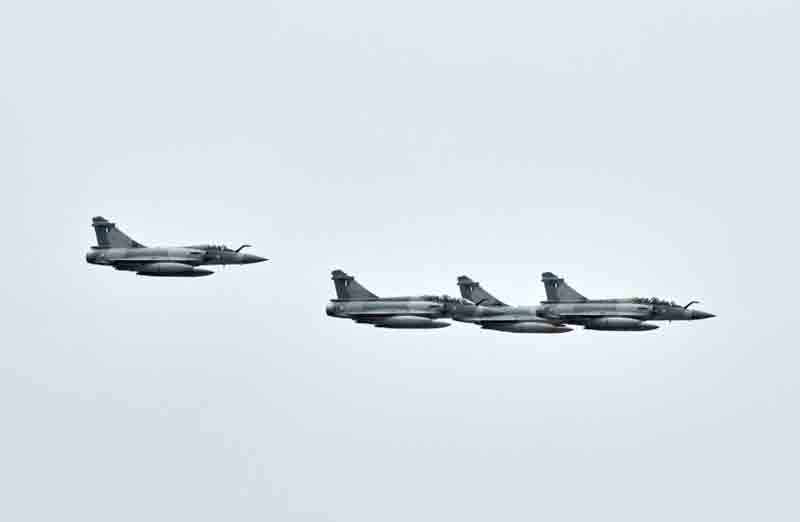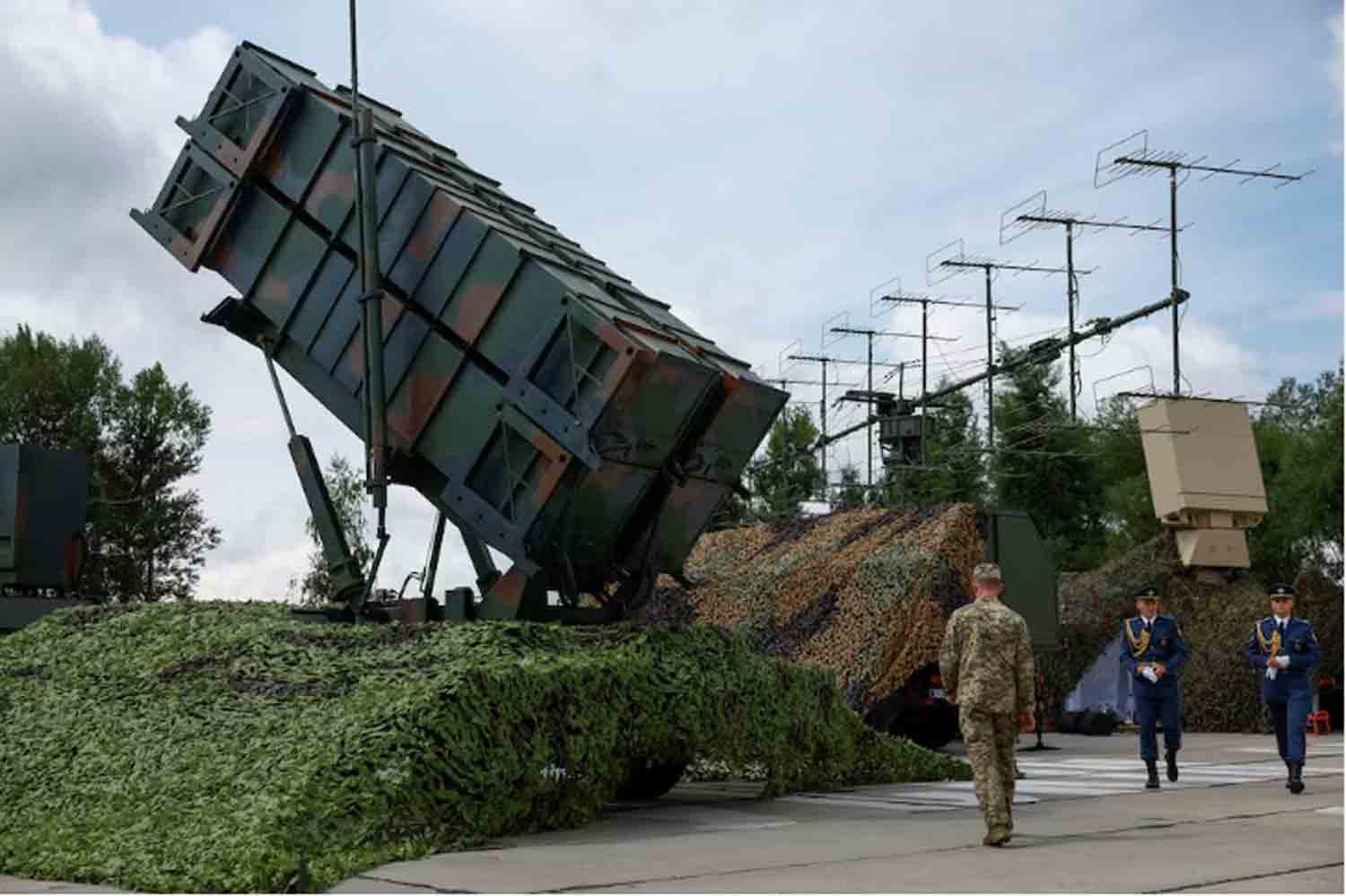Greece has made a significant advancement in reshaping its national defense with the official launch of the “Achilles Shield,” a €2.8 billion ($3 billion) air defense initiative that represents the most advanced element of the nation’s ongoing €25 billion military modernization effort. Announced by Prime Minister Kyriakos Mitsotakis in Parliament on April 2, 2025, the Achilles Shield is intended to be a multi-layered, integrated air defense system capable of addressing a diverse array of threats, including aircraft, ballistic and cruise missiles, unmanned aerial vehicles (UAVs), naval assets, and even threats from submarines. This ambitious initiative is expected to be operational by 2027, marking not only a vital modernization step but also a strategic shift in Greece’s vision for its role in the Eastern Mediterranean and its position within NATO‘s collective defense framework.
The Hellenic Armed Forces will implement the €2.8 billion ‘Achilles Shield,’ a comprehensive national air defense system aimed at safeguarding Greek airspace from contemporary aerial threats such as drones, missiles, and aircraft. It is projected to be fully operational by 2027. (Image source: Army Recognition Group)
The development of the future Greek air defense network “Achilles Shield” is driven by several factors, primarily the escalating complexity and severity of regional security issues. Ongoing tensions with Turkey regarding maritime and airspace conflicts, the increasing deployment of drones and precision-guided munitions in modern warfare, and the spread of ballistic missile technology have highlighted weaknesses in Greece’s existing air defense capabilities. These challenges necessitate a networked, layered, and rapid-response system that can function across various domains and effectively counter multiple types of attacks simultaneously.
The Greek Armed Forces currently operate 81 surface-to-air missile systems, comprising 48 long-range and 33 short-range platforms. The long-range systems include 36 M901 Patriot PAC-2 launchers and 12 S-300PMU1 systems of Soviet origin (NATO designation: SA-20 Gargoyle), which are becoming increasingly outdated. For short-range defense, Greece has 9 Crotale NG/GR systems, 4 9K331 Tor-M1 systems (SA-15 Gauntlet), and 20 RIM-7M Sparrow missiles integrated with Skyguard fire control units. Although these systems have reliably supported the Hellenic Armed Forces, they fall short in terms of interoperability, response time, and multi-role capabilities necessary to address current and future threats.
As part of a comprehensive modernization initiative, Greece is actively seeking to replace its aging S-300PMU1 systems. Reports from Greek and international media indicate that the Barak MX system, produced by Israel Aerospace Industries (IAI), is a leading candidate for this replacement. The Barak system provides a versatile, modular air defense solution with interceptors capable of engaging targets at ranges between 35 and 150 km, effectively defending against drones, aircraft, cruise missiles, and certain ballistic threats. Nations such as Germany and Finland have already adopted similar systems, highlighting their reliability and compatibility with NATO standards.
Prime Minister Mitsotakis emphasized the strategic importance of Israel as a defense ally, pointing out that systems like the Barak can be delivered much more quickly than alternatives from the United States or Europe. “Greece already possesses American Patriot systems. If we were to procure new ones, the wait would be four to five years. European options are limited. Israel, with which we have a strategic alliance, can provide solutions more rapidly,” Mitsotakis stated. The ability to deploy quickly is essential for Athens as it seeks to enhance its air defense capabilities without significant delays in operational readiness.
While Israel currently leads in air defense capabilities, Greece is actively engaging in discussions with other NATO member states to investigate supplementary or alternative systems for both the Achilles Shield and its comprehensive air defense modernization. The SAMP/T NG system from France, which employs the Aster 30 missile and is equipped for ballistic missile defense, stands out as a strong long-range option. Additionally, Italy and Norway provide the highly mobile NASAMS system, developed in collaboration with the U.S., utilizing AIM-120 AMRAAM missiles and already operational in numerous NATO countries. Germany’s IRIS-T SLM, recognized for its effectiveness against cruise missiles and UAVs, along with the American Patriot PAC-3 MSE system, are also being considered, although concerns regarding availability and export timelines persist.
The Achilles Shield initiative, in conjunction with the planned acquisition of the Barak system, underscores Greece’s pressing need to upgrade from outdated Cold War-era equipment to a digitally integrated, multi-threat defense framework. As national security faces increasing challenges from evolving geopolitical circumstances, Greece is making a significant commitment to achieving strategic independence and enhancing regional stability. The incorporation of advanced air defense systems will not only bolster national sovereignty but also improve Greece’s role in defending NATO’s eastern flank.
This modernization effort transcends mere equipment upgrades; it signifies a fundamental shift in military doctrine. The Achilles Shield is intended as a network-centric defense framework that integrates sensor fusion, advanced interceptors, and real-time data sharing within a unified command-and-control system. As threats grow more intricate and multifaceted, such a system is vital for maintaining contemporary military readiness.
As Greece completes its selection of suppliers and enters into contract negotiations, the next few months will be pivotal in shaping the future of its air defense systems. It is evident that with the implementation of the Achilles Shield, Greece is making a significant move to protect its airspace and ensure its strategic interests in an increasingly dynamic security landscape.
Discover more from Defence Talks | Defense News Hub, Military Updates, Security Insights
Subscribe to get the latest posts sent to your email.





